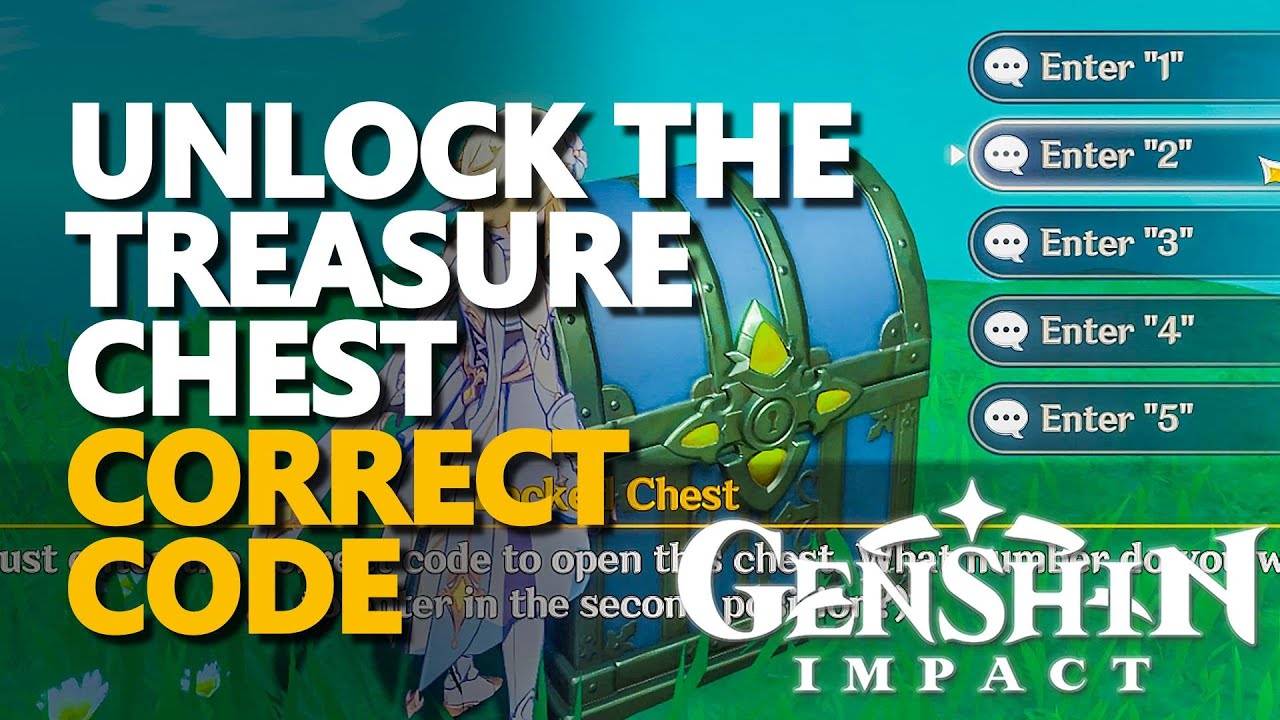
Unlocking the Treasure Chest: How to Secure Game Publisher Deals for Your Indie Game
Related Articles
- From Indie Dev To Publisher Darling: A Guide To Securing Game Publisher Deals
- How to Play the Game Extreme Car Parking: A Comprehensive Guide for Beginners and Seasoned Players
- How to Play the Game Park Master: A Comprehensive Guide to Conquer the Virtual Amusement Park
- How to dominate in Stickman Ninja: A Comprehensive Guide to Unlock Your Inner Ninja
- How to Play the Game Vex 3: A Complete Walkthrough for Ultimate Victory
Introduction
Discover everything you need to know about Unlocking the Treasure Chest: How to Secure Game Publisher Deals for Your Indie Game
Unlocking the Treasure Chest: How to Secure Game Publisher Deals for Your Indie Game

The dream of every indie game developer is to see their creation come to life, reaching a wide audience and leaving a lasting impact. But the path to success isn’t paved with rainbows and unicorns. It’s often a challenging journey filled with hurdles, one of which is securing a publishing deal.
While the prospect of partnering with a publisher might seem daunting, it can be a game-changer. Publishers offer invaluable resources like marketing expertise, financial support, and distribution channels, allowing your game to reach its full potential.
This article will equip you with the knowledge and strategies to navigate the treacherous waters of securing a publishing deal for your indie game. We’ll delve into the intricacies of the publishing landscape, dissect the essential elements of a compelling pitch, and guide you through the negotiation process. Buckle up, aspiring game developers, it’s time to unleash your inner dealmaker!
Understanding the Publishing Landscape
Before diving headfirst into the publishing pool, it’s crucial to understand the different types of publishers and their respective strengths.
- Major Publishers: These behemoths like EA, Ubisoft, and Activision Blizzard dominate the market with their vast resources and established brand recognition. While securing a deal with a major publisher might seem like hitting the jackpot, it’s a highly competitive arena. They typically focus on AAA titles with proven market potential, leaving indie games vying for limited opportunities.
- Mid-Tier Publishers: These publishers bridge the gap between major players and indie-focused studios. They offer a more balanced approach, providing support and guidance while maintaining a focus on creative control. They often specialize in specific genres, so research is key to finding the right fit.
- Indie Publishers: These publishers are dedicated to nurturing and promoting indie games. They offer a smaller scale of support, but their focus is on helping indie developers succeed. They often have a strong network within the indie community, providing access to valuable resources and opportunities.

Crafting the Perfect Pitch: Your Game’s Calling Card
A compelling pitch is your game’s passport to the publishing world. It’s your chance to captivate potential partners and showcase the unique value proposition your game offers.
- Know Your Audience: Before you start crafting your pitch, understand who your target audience is. What are their preferences? What games do they enjoy? This knowledge will help you tailor your message to resonate with the specific publisher you’re targeting.
- Highlight Your Unique Selling Proposition (USP): What makes your game stand out from the crowd? Is it the innovative gameplay mechanics, the compelling narrative, or the stunning visuals? Clearly articulate your USP and emphasize its potential to attract players.
- Develop a Compelling Narrative: Tell the story of your game in a captivating way. Highlight the core gameplay loop, the world you’ve created, and the emotions you aim to evoke in players. A well-crafted narrative will leave a lasting impression.
- Showcase Your Team’s Expertise: Publishers invest in people as much as they invest in projects. Highlight your team’s experience, skills, and passion for the game. Demonstrate your commitment to delivering a high-quality product.
- Prepare a Detailed Game Design Document (GDD): A GDD acts as your game’s blueprint, outlining its mechanics, features, and overall vision. It provides publishers with a comprehensive understanding of your project and its potential.
- Craft a Professional Pitch Deck: A visually appealing and informative pitch deck is essential. Use high-quality visuals, concise text, and engaging graphics to showcase your game’s potential.
- Practice Your Pitch: Rehearse your pitch until you can deliver it confidently and convincingly. A well-rehearsed pitch will make a strong impression on potential partners.
Navigating the Publishing Maze: Finding Your Path
Now that you’ve crafted a compelling pitch, it’s time to find your way through the publishing maze. Here are some strategies to help you navigate this complex landscape:
- Attend Industry Events: Industry events like GDC, PAX, and Gamescom offer excellent opportunities to network with publishers and showcase your game. Prepare your pitch, gather materials, and engage in meaningful conversations.
- Leverage Online Platforms: Platforms like itch.io, Steam Greenlight (now Steam Direct), and IndieDB provide visibility for your game and connect you with potential publishers.
- Reach Out Directly: Don’t be afraid to reach out to publishers directly. Research their interests, identify potential matches, and craft personalized emails expressing your interest and outlining your game’s potential.
- Consider a Demo: A playable demo can be a powerful tool for showcasing your game’s mechanics and gameplay. It allows publishers to experience your game firsthand and assess its potential.
- Build Your Online Presence: A strong online presence is crucial for attracting attention. Build a website, create social media accounts, and actively engage with the gaming community.
The Negotiation Dance: Striking the Right Deal
Once you’ve secured a meeting with a publisher, the negotiation process begins. This stage requires a blend of diplomacy, strategy, and understanding.
- Define Your Goals: Before entering negotiations, clearly define your goals and what you hope to achieve from the partnership. This will guide your decisions and ensure you’re getting the best deal.
- Understand the Publisher’s Perspective: Publishers are looking for games that will generate revenue and strengthen their portfolio. Understand their needs and align your goals accordingly.
- Negotiate the Terms: The terms of the deal can be complex, covering aspects like royalties, marketing support, development funding, and creative control. Be prepared to negotiate each point carefully.
- Secure Legal Counsel: It’s crucial to have legal counsel review the contract before signing. They can ensure the terms are fair and protect your interests.
Maintaining the Partnership: Building a Successful Relationship
Securing a publishing deal is just the beginning. Building a successful partnership requires ongoing communication, collaboration, and a shared vision for the game’s success.
- Open Communication: Regular communication is essential for maintaining a healthy partnership. Share updates, address concerns, and work together to overcome challenges.
- Collaborative Approach: Treat the publisher as a partner, not just a financier. Collaborate on marketing strategies, development decisions, and overall game direction.
- Respect Creative Control: While publishers offer valuable support, it’s crucial to maintain creative control over your game. Define clear boundaries and ensure your vision is respected.
The Journey Continues: Beyond the Deal
Securing a publishing deal is a significant milestone, but it’s just the beginning of a long journey. As your game progresses, you’ll face new challenges and opportunities.
- Focus on Quality: Delivering a high-quality game is paramount to success. Invest time and resources in refining your game and addressing player feedback.
- Embrace Marketing Strategies: Work closely with your publisher to implement effective marketing strategies that reach your target audience.
- Engage with the Community: Building a strong community around your game is essential for long-term success. Engage with players, listen to their feedback, and foster a sense of belonging.
Conclusion: Embracing the Journey
Securing a publishing deal for your indie game can be a challenging but rewarding experience. By understanding the publishing landscape, crafting a compelling pitch, and navigating the negotiation process with confidence, you can unlock the potential of your game and share it with the world. Remember, the journey to success is filled with obstacles and triumphs, but with dedication, perseverance, and a collaborative spirit, you can overcome any challenge and achieve your dream of seeing your game reach its full potential.
Source:
- Game Developers Conference (GDC): https://www.gdc.com/
- IndieDB: https://www.indiedb.com/
- itch.io: https://itch.io/
- Steam Direct: https://partner.steamgames.com/
- PAX: https://www.paxsite.com/
- Gamescom: https://www.gamescom.global/
Closure
We hope this article has helped you understand everything about Unlocking the Treasure Chest: How to Secure Game Publisher Deals for Your Indie Game. Stay tuned for more updates!
Make sure to follow us for more exciting news and reviews.
We’d love to hear your thoughts about Unlocking the Treasure Chest: How to Secure Game Publisher Deals for Your Indie Game—leave your comments below!
Keep visiting our website for the latest trends and reviews.


